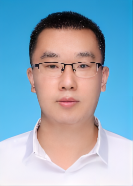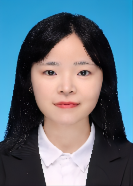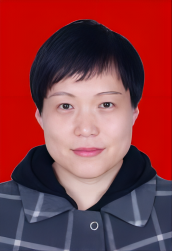Date and time: October 20, 2023
Organizers and Presenters
Shuai Wu
Xidian University, China

Hang Wei
Xidian University, China

Tutorial Summary
Deep learning plays a significant role in the computer vision field. Specifically, the deep network models have achieved great success in object detection, face recognition and human behaviour analysis. Moreover, deep learning has also become the mainstream technique for the medical image analysis field. Graph learning aims to learn complex relationships among nodes and the topological structure of graphs, such as bio-entity network and social network. Due to the broad application prospects of graph learning in various scenarios including text, image and biology, it has become a popular and promising area in machine learning. In this session, we would like to collect and investigate the recent advance for the intelligent applications of deep learning and graph learning in different fields. We also expect high-quality papers which can effectively solve special problems based on the deep learning or graph learning technology.
Topics to be Covered
Domains of interest include, but are not limited to: Computer vision; Object detection and face recognition; Human behavior analysis; Medical image analysis; Lesion detection and segmentation; Graph learning in bioinformatics; Node classification, link prediction and graph representation learning.
Intended Audience
Students, researchers, and developers interested in deep learning and graph learning, with a background in computer vision, machine learning or bioinformatics.
Session Presenters
Shuai Wu, Xidian University

Presentation Topic: Deformable Application for Object Detection
Shuai Wu received the Ph.D. from Harbin Institute of Technology (Shenzhen), Computer Science and Technology, mainly researching computer vision, object detection, medical image process, bioinformatics and other fields. He is currently an assistant professor at computer science and technology school of Xidian University. He has published more than 10 papers on SCI.
Hang Wei, Xidian University

Presentation Topic: NcRNA-disease Association Identification Based on Relation Network Representation
Hang Wei received her Ph.D. degree in computer application technology from Harbin Institute of Technology, mainly engaged in the research of bioinformatics, data mining, computational intelligence and its application analysis in biomedicine data. She is currently an assistant professor at computer science and technology school of Xidian University. She has published more than 10 papers on SCI.
Chunwei Tian, Northwestern Polytechnical University

Presentation Topic: From the Identification of Human and Machine Composition to the Modelling of Music Melodies
Chunwei Tian (Member, IEEE) received his Ph.D degree in Computer Application Technique at Harbin Institute of Technology in Jan, 2021. He was a Research Fellow at City University of Hong Kong. He is currently an Associate Professor with the School of Software, Northwestern Polytechnical University, China. Also, he is a member of National Engineering Laboratory for Integrated Aerospace Ground-Ocean Big Data Application Technology. He becomes a High-level Talents of Jiangsu Province and a Young Sci-tech Talents of Suzhou Association for Science and Technology in 2022. He becomes a world’s Top 2% Scientist in 2022. He has obtained 2021 Shenzhen CCF Excellent Doctoral Dissertation and 2022 Harbin Institute of Technology. His research interests include image restoration and deep learning. He has published over 50 papers in academic journals and conferences, including IEEE TNNLS, IEEE TMM, IEEE TSMC, IEEE TGRS, Information Fusion, Pattern Recognition, Neural Networks, Information Sciences and ICASSP, etc. He has five ESI highly-cited papers, three homepage papers of the Neural Networks, one homepage paper of the TMM, one excellent paper in 2020 for the CAAI Transactions on Intelligence Technology. Also, his three codes are rated as the contribution codes of the GitHub 2020. His two paper techniques are integrated on the iHub and Profillic. Besides, he is an associate editor/young editor of the CAAI Transactions on Intelligence Technology, the Defence Technology, the Intelligent Data Analysis, the mathematics, etc. Also, he is also a reviewer of some journals and conferences, such as the IEEE TPAMI, IEEE TIP, the IEEE TII, the IEEE TNNLS, IEEE TCYB, the IEEE TCSVT, the IEEE TKDE, the IEEE TSMC, the NN, the Information Sciences, the CVIU, the Information Fusion, the AAAI, the ICASSP, etc.
Baoli Wang, Yuncheng University

Baoli Wang received the Ph.D. degree in computer science from Shanxi University, in 2016. She is currently a Professor in the School of Mathematics and Information Technology, Yuncheng University. Her research interest includes the areas of intelligence decision and granular computing. She has published several journal papers in her research fields, including in Artificial Intelligence Review,Information Sciences, International Journal of Fuzzy Systems, International Journal of Machine Learning and Cybernetics, International Journal of Uncertainty, Fuzziness and Knowledge-Based Systems, Fundamenta Informaticae, and so on.